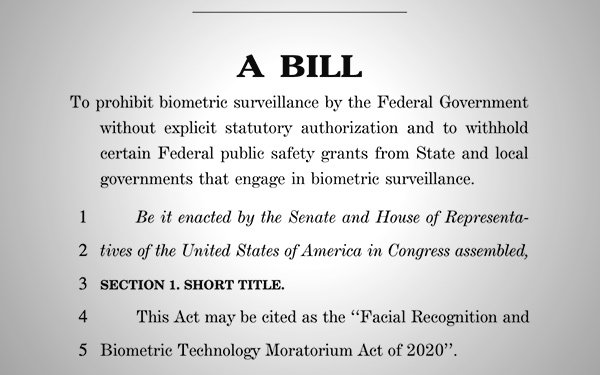
Four federal lawmakers have unveiled a bill that would
prohibit federal law enforcement agencies and other government entities from using technology that identifies people based on biometric -- including faceprints, voiceprints and gaits.
The
proposed “Facial Recognition and Biometric Technology Moratorium
Act” would also prohibit state and local agencies that receive federal grants from using facial recognition and other biometric technologies.
The measure -- introduced by Sens. Ed
Markey (D-Massachusetts) and Jeff Merkley (D-Oregon) and Reps. Pramila Jayapal (D-Washington) and Congresswoman Ayanna Pressley (D-Massachusetts) -- comes the same week that lawmakers in Boston voted
to ban police from using facial recognition technology.
advertisement
advertisement
Other cities to ban law enforcement from using facial-recognition technology include California's San Francisco and Oakland, and
Massachusetts' Brookline, Somerville, Northampton, Springfield and Cambridge.
Civil rights advocates have long expressed concerns that facial-recognition technology will effectively end
people's ability to appear outdoors -- at protests, political events, or other public spaces -- without revealing their identity to the government.
“The threat that facial recognition
poses to human society and basic liberty far outweighs any potential benefits,” Evan Greer, deputy director of digital rights group Fight for the Future, wrote last year in a column for BuzzFeed. “It’s on a very short list of technologies -- like nuclear and biological
weapons -- that are simply too dangerous to exist, and that we would have chosen not to develop had we had the foresight.”
Other politicians, as well as people in private business, have
also expressed concerns. Last August, Sen. Bernie Sanders (I-Vermont) called for a ban on the use of facial recognition software. And earlier this year, Google CEO Sundar Pichai urged a temporary
block on the use of facial recognition technology.
In addition to privacy issues, there are also concerns that the technology is inaccurate -- especially when identifying minorities.
Markey and the other bill sponsors noted Thursday that the National Institute of Standards and Technology recently reported that Black, Brown, and Asian individuals were up to 100 times more likely
to be misidentified than white male faces.
Separately, an MIT study reportedly showed
the facial analysis technology had error rates of nearly 35% when identifying dark-skinned women.
“Facial recognition technology doesn’t just pose a grave threat to our privacy, it
physically endangers Black Americans and other minority populations in our country,” Markey stated Thursday. “In this moment, the only responsible thing to do is to prohibit
government and law enforcement from using these surveillance mechanisms.”